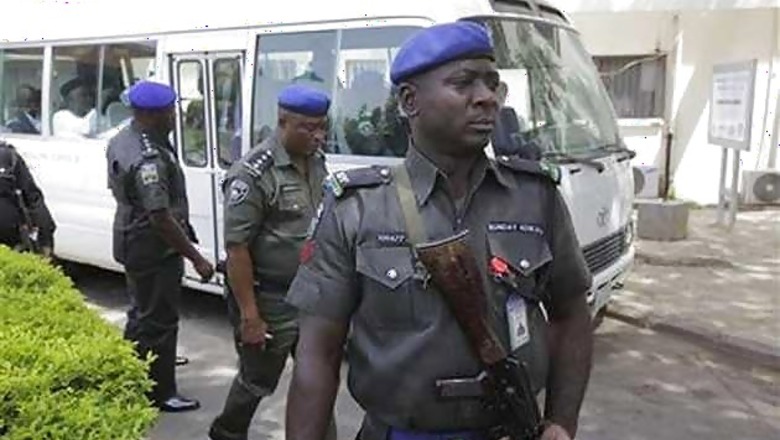
views
The fate of 115 female students abducted by Islamic extremists was thrown into uncertainty on Thursday when their school principal denied the Nigerian military's report that almost all the pupils had been freed.
"Up till now we are still waiting and praying for the safe return of the students ... the security people, especially the vigilantes and the well-meaning volunteers of Gwoza are still out searching for them. The military people, too, are in the bush searching," the principal, Asabe Kwambura, told The Associated Press by telephone.
She said only 14 of the 129 girls and young women kidnapped by gunmen before dawn Tuesday have returned to Chibok town - four who jumped from the back of a truck and 10 who escaped into the bush when their abductors asked them to cook a meal.
The principal directly contradicted Maj. Gen. Chris Olukolade, the Defense Ministry spokesman, who said in a statement late Wednesday night that Kwambura herself had confirmed that all but eight of the students have been accounted for. "The others have been freed this evening," he said. He also said security forces had captured one of the abductors.
Olukolade could not immediately be reached for further comment.
School principal Kwambura was adamant: "So let it be clear that all the information passed on to the media by the military concerning 107 girls is not true."
Kwambura said the students were kidnapped because of a terrible mistake. She said the insurgents arrived after midnight at her Government Girls' Secondary School wearing military fatigues and posing as soldiers - a common tactic used by the insurgents. She said she believed them when they told her that they needed to move the girls for their own safety. So she allowed the extremists posing as soldiers to load the students on to the back of a truck.
It was only as the armed men were leaving, and started shooting, that she realized her mistake. The militants killed a soldier and a police officer guarding the school, she said.
Security forces are in hot pursuit of the kidnappers, according to the government.
Borno state Gov. Kashim Shettima offered a reward of $300,000 for information leading to the release of the young women, aged between 16 and 18.
Shettima told The Associated Press that he wanted to visit Chibok but the military told him it was too dangerous, even under its escort, for him to make the 130-kilometer (80-mile) drive from Maiduguri, the capital of Borno state and birthplace of the Boko Haram terrorist network. The area borders the Sambisa Forest that is a known hideout of the extremists and that the military has been pounding with near-daily air raids since January.
The abductions have been condemned by many around the world. The 57-state Organization of Islamic Cooperation warned it "tarnishes the good image of Islam" and U.N. Secretary-General Ban Ki-moon said "The targeting of schools and school children is a grave violation of international humanitarian law." British Foreign Secretary William Hague tweeted "I condemn the sickening abduction of school girls in Nigeria. UK stands ready to help Nigerian authorities. My thoughts with the families."
The extremists have been on a rampage in Nigeria this week, blamed for four attacks in three days that started with a massive explosion at a busy bus station during the Monday morning rush hour in Abuja, the capital, which killed at least 75 people.
Two attacks in northeastern villages killed 20 people Tuesday night and Wednesday morning.
More than 1,500 people have been killed this year, compared to an estimated 3,600 between 2010 and 2013.
The attacks undermine government and military claims that security forces are containing the Islamic militants' uprising that began five years ago in the extreme northeast of the country.
Boko Haram - the nickname means "Western education is sinful" - has vowed to force an Islamic state on Nigeria, Africa's most populous nation of some 170 million people divided almost equally between mainly Muslims in the north and a predominantly Christian south. They say Shariah law will halt corruption that is endemic.
The extremists have attacked schools, sometimes killing students and other times kidnapping girls and young women to use as cooks, sex slaves and porters. In one horrendous attack in February, where 59 students were burned to death in a dorm, Boko Haram had first gone to the girl's residence hall and told them all to leave, go home and forget about education because it was un-Islamic.
Nigeria has Africa's biggest economy but 70 percent of the population lives below the poverty line, and the northeast suffers the most. Only 5 percent of children get to high school there, and only a small percentage of those are girls.
The government closed all schools in Borno three weeks ago because of the frequent attacks. The girls who were kidnapped had been recalled so they could write their final exams.




















Comments
0 comment